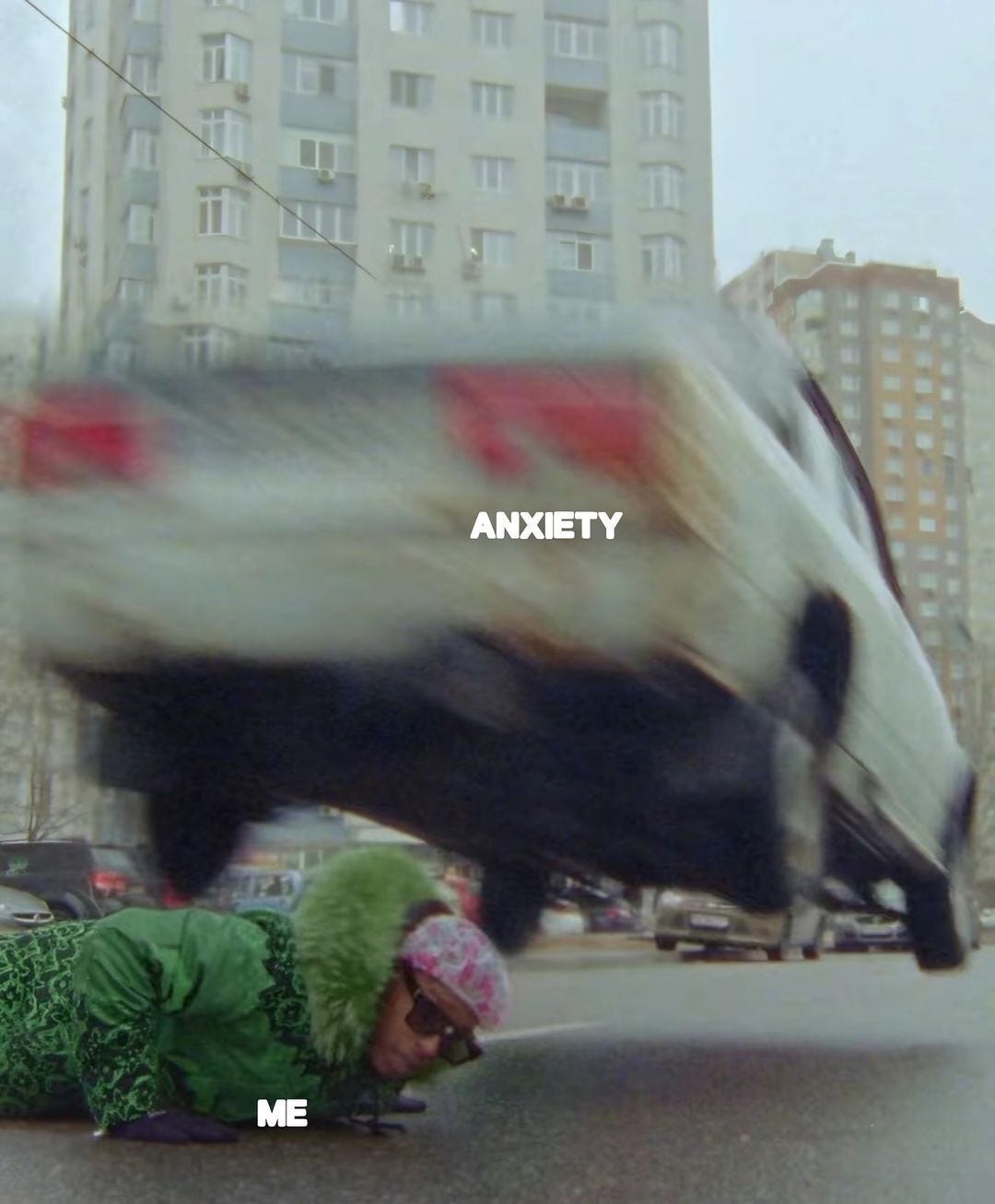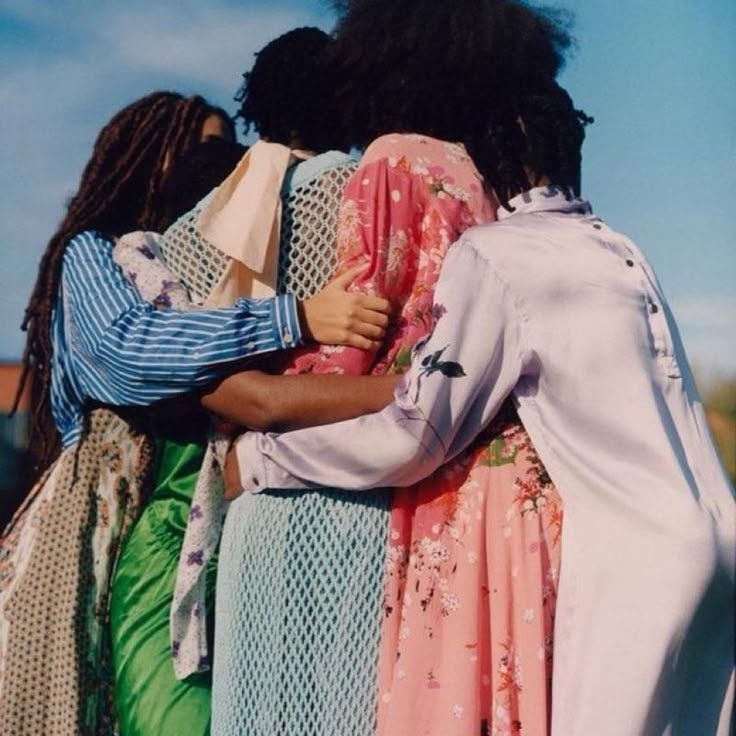The End is Near! (And Always Has Been!)
Why Every Generation Thinks the World Is Ending (And They’re Not Always Wrong)
If you're currently spiraling over the state of the world, congratulations—you’re participating in a time-honored human tradition. We, as a species, have been losing our collective minds forever. Every era has its existential panic, from Cold War bomb drills to Y2K hysteria to whatever flavor of doomscrolling we’re indulging in today.
2025: An All-Time High in Anxiety and Panic
HOWEVER, If it feels like everyone you know is one bad headline away from throwing their phone into the ocean (or subway if you’re in NYC like me), and starting a new life off the grid…you’re not imagining it. By every measurable standard, stress, anxiety, and burnout have hit record highs.
A recent APA survey found that 87% of Americans feel like there’s a “constant stream of crises without a break.” Mental health issues are spiking. We are—by all accounts—burned out.
Which makes sense. We’re 50 days into a new presidency, and if I’m honest, I feel...numb. Not actively freaking out (yet), but in a detached, out-of-body kind of way. Maybe it's a trauma response? Maybe my nervous system just gave up?! Yes, I am aware, I’m someone who processes things slowly, over time, a million questions later…but intellectually? I get why people are panicking.
We’re walking into an era of uncertainty, and uncertainty breeds fear
The Psychology Behind Mass Freak-Outs
The good news is…this is somewhat history repeating itself. Humans are wired to panic together. It’s called collective hysteria, and history has receipts.
Psychologist John Drury, who studies crowd behavior, found that panic spreads fastest when people feel isolated—when they don’t trust the systems around them to keep them safe. Cough. Cough…Sound familiar?
Robert Bartholomew’s research on mass psychogenic illness highlights how shared anxiety can even manifest physically—entire groups experiencing symptoms of illness without a direct physical cause. Think of the Y2K hysteria, when the world stockpiled canned goods in preparation for a technological meltdown that never happened. (Or if you’re a history nerd, comme moi, the War of the Worlds radio broadcast in 1938, when people genuinely believed Earth was under alien attack).
Okay back to Y2K. The panic of Y2K happened when I was 8 years old…I don’t really remember it. What I do remember however, was that my parents and immediate family didn’t buy into it at all.
“Witchcraft,” my Trinidadian godmother Melenia would say.
But at school? People were panicking. Teachers were anxious. And when midnight hit and nothing happened… Everyone who freaked out all just pretended like the mass hysteria never existed…Sure.
That’s the thing about collective freak-outs. They often fade just as quickly as they appear.
And the real sting? The panic almost never fixes the actual problem.
The Problem with Panic: It’s Exactly What They Want
Here’s where this gets dangerous: “freaking out”, “panicking”, “stressing out”, whatever we want to title it is pure exhaustion. And exhaustion is exactly what the folks in power as of March 2025, want.
Think about it. Behind every moment of mass hysteria, there’s a greater distraction at play.
While everyone was hoarding supplies for Y2K, the tech industry quietly secured billions in government contracts.
While people panicked over Ebola in 2014, systemic healthcare failures that disproportionately harmed Black and Brown communities went largely unchallenged.
While social media floods our feeds with election doomsday scenarios, actual policies get rolled back with barely a whisper.
While COVID-19 was (and still is) a real public health crisis, corporations capitalized on the fear, consolidating wealth while workers bore the brunt of the economic collapse. We saw billionaires double their fortunes, while essential workers—many from marginalized communities—were left to fend for themselves.
This is by design.
The goal isn’t to inform you—it’s to wear you down. To leave you so depleted by fear that you disengage entirely. Because exhausted people don’t fight back.
Reframing the Freak-Out
And this is where we have to hold nuance. Some fears are real. COVID was a global crisis. Elections do have catastrophic consequences. But the difference between an informed response and a hysteria-driven one is what we do with that fear.
There’s a fine line between acknowledging the severity of a situation and falling into a cycle of helplessness. The truth always exists somewhere between conspiracy theory and apathy. When we lose sight of that, we either become paralyzed or manipulated.
They want us too overwhelmed to fight back. They want us doomscrolling instead of organizing. They want us consuming instead of questioning.
I’m not here to tell you everything will be fine. It won’t for a while...It’s rough out there.
BUT what if, instead of freaking out, we focused our energy on not letting this happen again?
What if we took all that charged, exhausted energy and channeled it into something sustainable? What if we actually supported the people, policies, and movements that protect our collective rights, rather than just doomscrolling our way into paralysis?
I say this as someone still processing, still adjusting, still waiting for the full weight of it all to hit me. But I refuse to give my energy to chaos. And I hope you won’t either.
Because exhaustion isn’t just a symptom—it’s a strategy used against us. And I refuse to let it win.
So, what does it look like to move forward without falling into the cycle of hysteria?
It means prioritizing rest—because rest is a form of resistance.
It means turning panic into action—supporting movements, not just reacting to headlines.
It means refusing to let exhaustion keep us silent, compliant, or disengaged.
It means showing up. Even when it’s inconvenient. Especially when it’s inconvenient.
This presidency has already been labeled unprecedented. Every political expert will tell you that what we’re experiencing is unlike anything modern American democracy has faced before. But that’s exactly why we have to shift our approach.
We don’t have to freak out. We have to focus.
We have to conserve our energy—not to disengage, but to be intentional with it. To fight for what actually matters.
Tricia Hersey, the founder of The Nap Ministry, said it best:
"Exhaustion will not create liberation. You must rest. You must resist grind culture. You must refuse to let capitalism steal your joy."
So let’s reclaim our energy. Let’s rest. And then, when we’re ready, let’s rise.
Because freaking out is tradition. But so is revolution.







